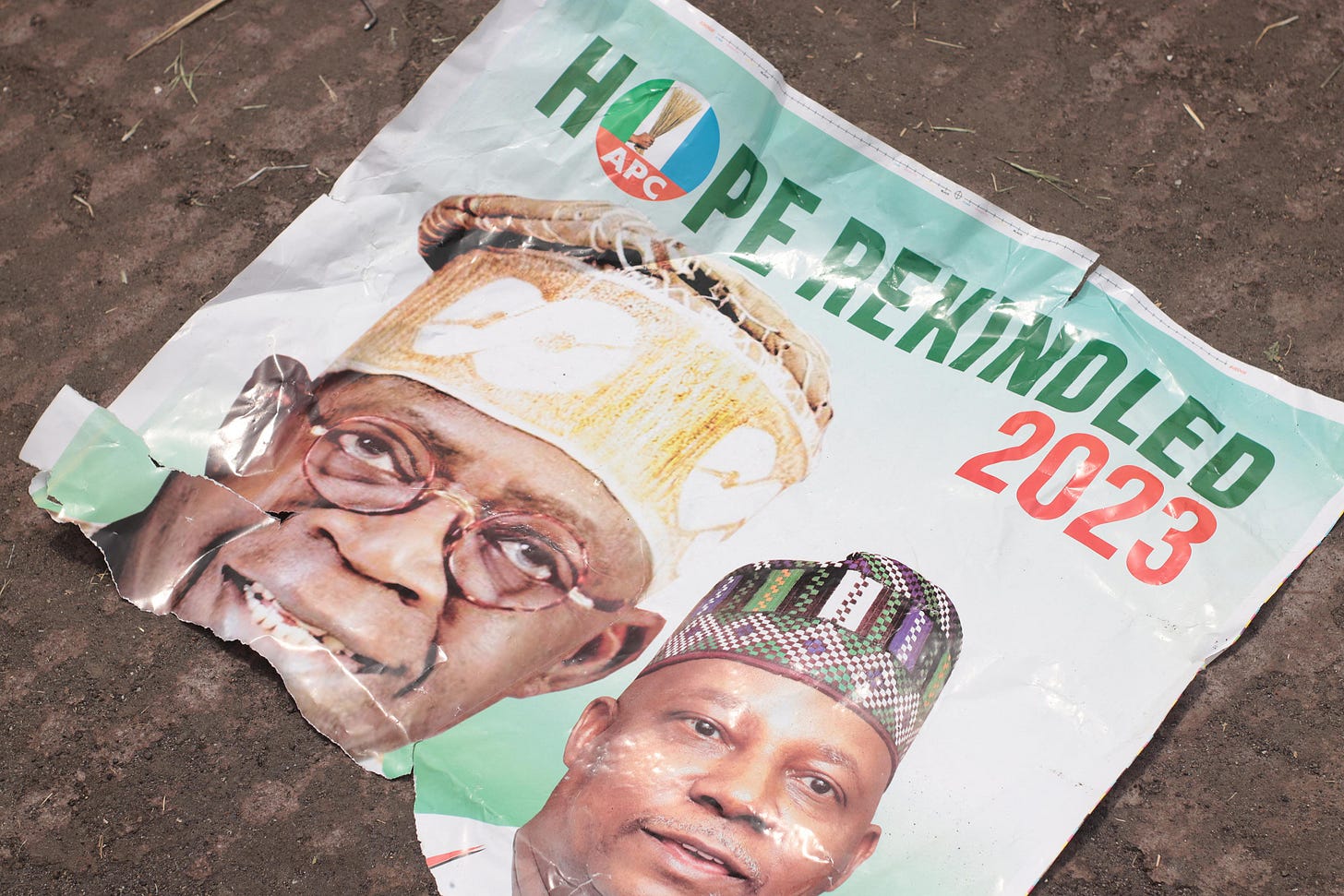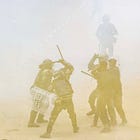Nigeria: How Tinubu brings hungry people to heel
Distract, threaten and, if all else fails, dangle cash.
Pelumi Salako in Lagos

Dressed in a Super Eagles shirt and baseball cap, 49-year-old Samuel Oluwaseyi joined those who took to the streets this month to protest against the economic crisis – 40% food inflation and 34% general inflation. It’s the worst he remembers living through. “I don’t care,” he said. “I am ready to sacrifice my life.”
His commitment was, however, matched by that of the Nigerian state – which appeared determined to repress popular expressions of anger.
A week ahead of the protests, the secretary to the government, George Akume, on behalf of President Bola Tinubu, asked traditional and religious leaders to rein in their people. Days later, adherents of the Oro traditional worship practice announced a two-week festival to overlap with the planned protests. Oro faithful reportedly went around Lagos threatening would-be protesters, accusing Igbo people of trying to destroy the city.
On the eve of the protests, pre-emptive marches to discourage participation in the protests popped up in Lagos, Ogun State and the national capital Abuja.
Some of the marchers told journalists they were paid to participate, and needed the money to buy food. Osa Emmanuel, a plumber, told The Africa Report in Abuja that: “We are saying no to protests because of the 5,000 naira ($3) we were promised.”
When thousands showed up for the protests on 1 August, Nigerian security responded with force, killing at least 21 and arresting more than 1,000 people, according to Amnesty International. The protests soon fizzled to small gatherings.
None of this means that the Nigerian government has had the last word, however.
“The Nigerian government appears to be underestimating the wider frustration in the country,” said Ikemesit Effiong of the Lagos-based risk analysis firm SBM Intelligence. “The next protest will not be announced. We will not know where it will happen. It may turn out to be more violent and more reactionary.”






